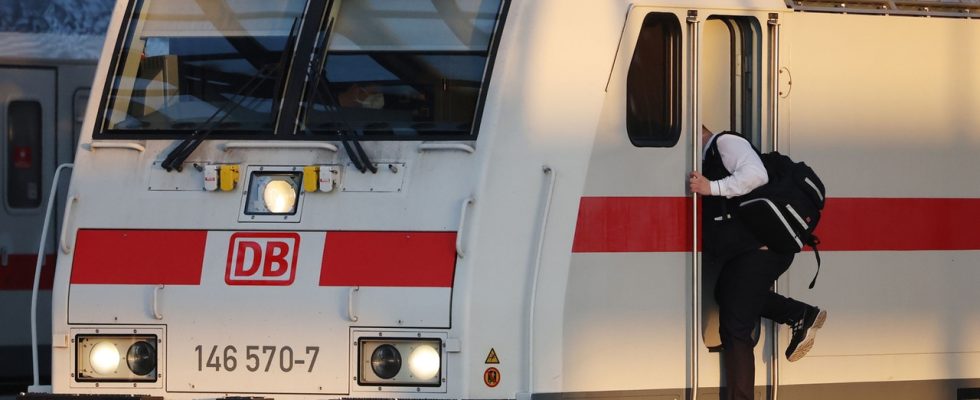faq
While the railway praises the collective agreement as an “intelligent compromise”, GDL boss Weselsky speaks of a “success almost across the board”. What are the key points and consequences of the agreement?
What have Deutsche Bahn and GDL agreed on?
The collective agreement contains three essential points. Firstly, the train drivers receive an inflation compensation bonus of 2,850 euros, 1,500 euros this month and another 1,350 euros expected in May. Secondly, the wage will be increased by 420 euros per month in two steps, each by 210 euros on August 1, 2024 and April 1, 2025.
The most important content is the gradual reduction in standard weekly working hours from 38 to 35 hours by 2029 with full wage compensation. The first reduction will take place on January 1, 2026 to 37 hours, on January 1, 2027 to 36 hours, on January 1, 2028 to 35.5 hours and on January 1, 2029 to 35 hours.
But this is combined with an option model for the actual weekly working hours – which is “innovative” according to Deutsche Bahn. The agreed “reference working hours” are not mandatory: If you want, you can work longer in a corridor between the standard working hours and a maximum of 40 hours and receive 2.7 percent more wages for each additional hour per week.
What does this mean for the railway’s competitors?
In the run-up to the agreement with Deutsche Bahn, the GDL had already concluded collective agreements with almost 30 other railway companies. She was able to push through her demands for a reduction in working hours. However, these agreements were subject to the condition that the industry leader Deutsche Bahn also agreed to the 35-hour week. This is now the case – with the corresponding consequences for rail competitors.
What preceded the agreement?
In the run-up to the compromise that has now been reached, an exceptionally tough collective bargaining battle took place. During the five months of negotiations there were six strikes, one failed moderation and several legal disputes. The main sticking point was the reduction in weekly working hours for staff on shift work to 35 hours with full wage compensation, as demanded by the GDL, which the railway initially strictly rejected. The option model that has now been found apparently brought the breakthrough.
When is the earliest the GDL will strike again?
There will be no more strikes under GDL boss Claus Weselsky, who is leaving in the summer. The collective agreement runs until December 31, 2025, and the agreements on working hours even run until December 31, 2028. At the beginning of 2026 there will be a fixed two-month negotiation phase with a peace obligation until the end of February.
Does the agreement have an impact on the contract with EVG?
The contract with the competing railway and transport union (EVG) remains unaffected by the collective agreement with the GDL. “We have existing collective agreements with EVG that run until the end of March next year,” explained Deutsche Bahn’s human resources director Martin Seiler. “We have not agreed on a renegotiation clause, and so we see ourselves at the negotiating table with the EVG in around a year.” Bahn and EVG had already reached a collective agreement in the summer, which, among other things, provided for a wage increase of 410 euros per month.
What are the reactions?
The compromise on working hours in particular is highlighted not only by the railways but also by economists as a groundbreaking solution for the future. “The most important result of this agreement is that working hours are flexible: employees can work between 35 and 40 hours,” explained the President of the Munich ifo Institute, Clemens Fuest. Those who work more also receive more money. “This is better for dealing with the shortage of skilled workers than a forced reduction in weekly working hours to 35 hours for everyone,” said Fuest.
Does the industrial dispute have further consequences?
Despite the collective agreement, the FDP announced that it would work on reforming the right to strike in view of the numerous strikes. The agreement is “good news,” said the economic policy spokesman for the FDP parliamentary group, Reinhard Houben. “Nevertheless, the past few weeks have shown that we need guard rails for striking in the area of critical infrastructure.” Houben referred to guidelines for strikes in “critical infrastructure” in other European countries. In addition to the six rail strikes, there were also repeated air strikes. Not only the FDP, but also the CDU and CSU have spoken out in favor of strike law reform.

